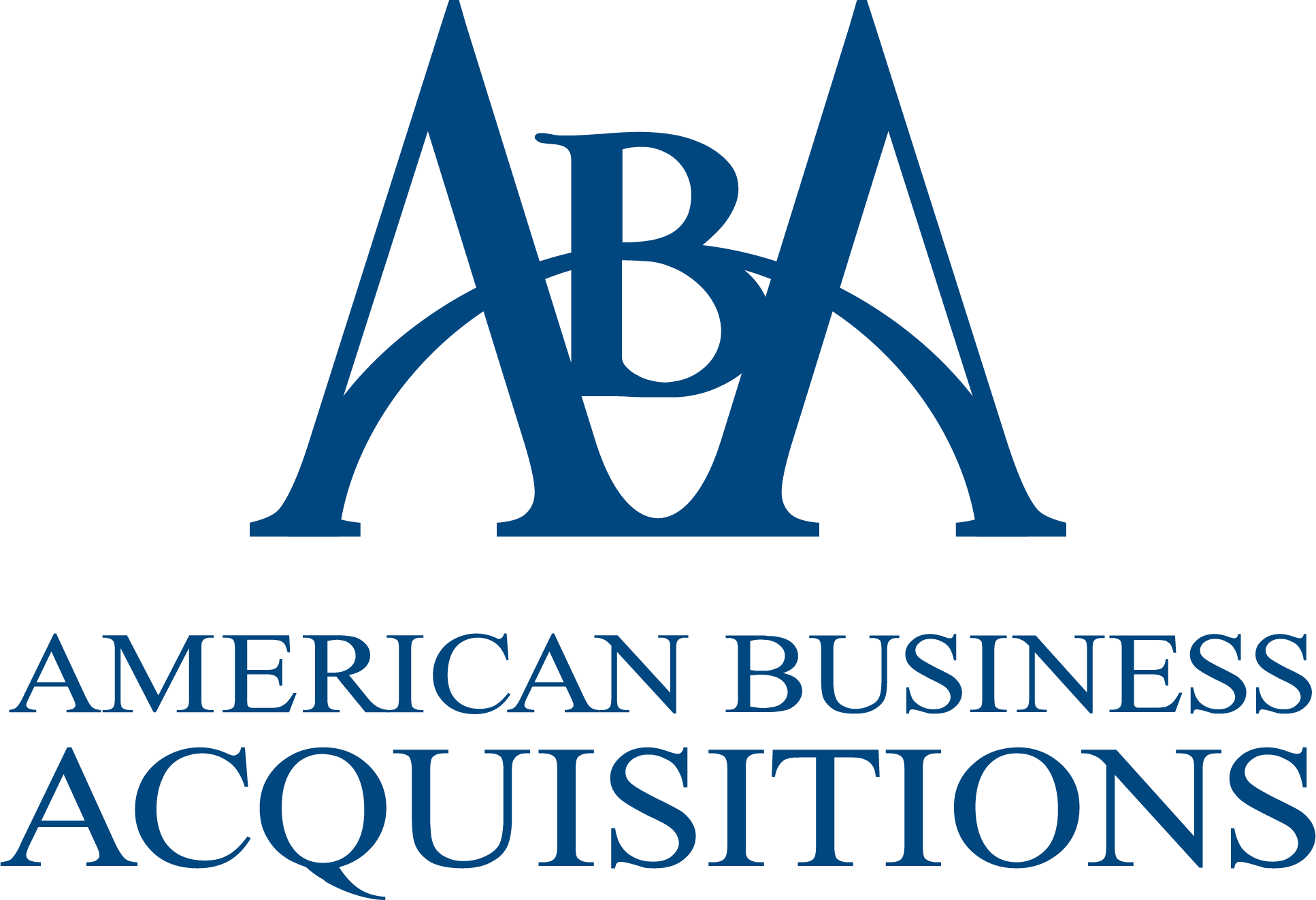“Do I need a broker to buy a business?” This burning question likely brought you here, but it’s far from a simple yes or no answer. It’s a dilemma that has left many aspiring business owners scratching their heads, feeling caught between a rock and a hard place.
Imagine being able to navigate the business buying process with confidence and ease, possessing the knowledge to make informed decisions that align with your specific needs and circumstances. Whether you choose to enlist a broker or venture independently, this guide will equip you with the essential tools to ensure a successful purchase.
In this comprehensive guide, we delve deep into the realm of business acquisition, shedding light on the mysterious figure that is the business broker. We unravel the pros and cons of utilizing their services, providing you with a clear, unbiased view of their role in the transaction.
So, embark on this journey with us as we explore the intricacies of business acquisition, from the role of a business broker to the process of buying a business without one. Dive into the following chapters, where we dissect real-life case studies, provide step-by-step guides, and offer insights into legal loopholes and tactical negotiation strategies. This is the definitive guide for anyone considering the exciting yet complex world of business buying. Let’s get started!
Contents
The Role of a Business Broker
Business brokers, sometimes referred to as business transfer agents, are different than lawyers and play a crucial role in facilitating the buying and selling of businesses. Their expertise and experience can significantly impact the process and outcome of a business transaction. Here, we’ll dive deep into their role, their responsibilities, and their value in the business buying process.
Detailed Explanation of What a Business Broker Does
Business brokers act as intermediaries between buyers and sellers of businesses. They assist in various facets of the transaction, including business valuation, marketing the business, identifying potential buyers, negotiating terms, and coordinating due diligence efforts.
According to the International Business Brokers Association (IBBA), more than 50% of small to midsize businesses use brokers in their transactions.
Business brokers typically have a comprehensive understanding of the marketplace and can provide valuable insights into industry trends, pricing norms, and potential growth opportunities. They also have a network of contacts, such as accountants, attorneys, and bankers, who can expedite the transaction process.
Delineation of a Broker’s Responsibilities and How They Can Ease the Business Buying Process
The responsibilities of a business broker are manifold. They must first understand the business they’re selling, including its financial health, market position, and potential growth opportunities. They then use this information to set a competitive price that’s attractive to buyers while ensuring a fair return for the seller.
Business brokers also manage marketing efforts, showcasing the business to potential buyers through various channels. They screen potential buyers, ensuring they have the necessary financial resources and the right background to run the business successfully.
During negotiations, brokers serve as mediators, helping to resolve disputes and move the process forward. They also coordinate with attorneys, accountants, and other professionals involved in the transaction to address all legal and financial considerations.
Finally, business brokers provide guidance during the due diligence process, ensuring that all information provided to the buyer is accurate and complete.
Business brokers can significantly ease the business buying process by performing these duties. They can save buyers time and effort, reduce stress, and increase the chances of a successful transaction.

Pros and Cons of Using a Business Broker
The decision to utilize a business broker in your quest to acquire a business can significantly shape the trajectory of the entire process. To make an informed decision, weighing the benefits and drawbacks is essential. Let’s delve into the pros and cons of hiring a business broker.
Benefits
The benefits of using a business broker are numerous, and many buyers find their expertise and guidance indispensable during the business buying process.
- Access to a Wider Range of Businesses: Business brokers typically have access to a vast network of businesses for sale, many of which may not be advertised publicly. This wider range increases your chances of finding a business that fits your specific criteria.
- Confidentiality: Business brokers understand the importance of maintaining confidentiality throughout the business buying process. They manage communications between parties, ensuring sensitive information is protected.
- Negotiation Expertise: With their extensive experience in business transactions, brokers can provide valuable guidance during negotiations. Their skills can help you secure a fair and favorable deal.
- Efficiency: A competent broker can streamline the buying process, handling complex tasks such as due diligence, preparing necessary documentation, and coordinating with other professionals involved in the transaction.
According to a 2019 survey by the IBBA, 84% of respondents agreed that working with a business broker added value to their transaction.
Downsides
While using a business broker comes with considerable benefits, there are also potential downsides that buyers should consider:
- Cost: Business brokers typically charge a commission, usually a percentage of the sale price. This can be a substantial amount, especially for larger transactions.
- Potential Conflicts of Interest: Although most brokers strive for a fair transaction, they are ultimately working for the seller who is paying their fee. This may result in potential conflicts of interest.
- Limited Control: When working with a broker, buyers may have less control over the process. Some may prefer to manage the transaction themselves to maintain full oversight.
The decision to use a business broker should be based on your individual needs, circumstances, and comfort level with the business buying process. A careful evaluation of these pros and cons will help guide your decision.
Examples of Business Purchases With and Without a Broker
The business buying process can take various forms depending on whether you choose to utilize a business broker or venture solo. To illustrate this, let’s explore two real-life scenarios, one involving a broker and the other without.
Case Study 1: Successful Business Acquisition with the Help of a Broker
In 2017, Tom, an entrepreneur looking to diversify his portfolio, decided to acquire a software company. He enlisted the services of a reputable business broker to assist in the process.
The broker began by understanding Tom’s specific criteria and financial capacity. He then leveraged his extensive network to source potential businesses, eventually presenting Tom with a profitable software company in a growing market.
Throughout negotiations, the broker’s expertise proved invaluable, securing favorable terms that protected Tom’s interests. The broker also coordinated due diligence, ensuring all information provided was accurate and complete.
Ultimately, the deal was successful, and Tom was able to acquire the software company at a fair price. In this instance, the broker’s services significantly eased the buying process and resulted in a favorable outcome.
Case Study 2: Successful Business Acquisition Without a Broker
In contrast, let’s consider the case of Lisa, a seasoned entrepreneur with previous experience in buying and selling businesses. In 2018, she decided to buy a local cafe without the help of a broker.
Lisa began her search by leveraging her own network and scouring online business-for-sale listings. After identifying a promising cafe, she approached the owner directly and expressed interest in purchasing the business.
Drawing upon her business acumen, Lisa conducted her own due diligence, analyzing the cafe’s financials, market position, and growth potential. Her negotiations with the owner were successful, and she managed to agree on a price that she felt was equitable.
In this instance, Lisa’s experience and confidence in managing the process herself allowed her to successfully acquire the business without the assistance of a broker.
Analysis and Comparison of These Cases
These two case studies illustrate that both paths, with or without a broker, can lead to successful business acquisitions. The decision largely depends on the buyer’s experience, confidence, and personal preferences.
In the first case, Tom benefitted from the broker’s expertise, network, and negotiation skills, which eased the process and ensured a favorable deal. On the other hand, with her experience and knowledge, Lisa managed the process herself, maintaining control over each step and saving on broker’s fees.
A 2020 IBBA report found that deals involving brokers had a 12% higher closing rate than those without. However, it’s essential to note that individual results can vary significantly based on many factors.
The Process of Buying a Business Without a Broker
Choosing to navigate the business buying process without a broker can be a viable path for some, especially those with experience in business transactions or a keen understanding of the market. Let’s delve into the steps involved in this process, providing a detailed roadmap for potential buyers.
Identification of Suitable Businesses
The first step involves identifying potential businesses for sale that meet your specific criteria. This task can be accomplished through online business marketplaces, networking events, industry contacts, or even direct outreach to business owners. According to BizBuySell’s Insight Report, 25% of businesses for sale are not publicly advertised.
Initial Contact and Expression of Interest
Once a suitable business is identified, the next step is to make contact with the owner or their representative. This initial contact typically involves expressing your interest and requesting more information about the business. It’s essential to approach this step professionally and with respect for the owner’s confidentiality.
Due Diligence
If the initial discussions are promising, the next step is due diligence. This process involves a thorough examination of the business’s financial records, legal status, market position, and other relevant aspects. This step is crucial to ensure that you’re making an informed decision.
Valuation and Negotiation
Next, you’ll need to determine the value of the business. Various methods can be used, including asset-based valuation, earnings multiplier, or discounted cash flow. Once a value is determined, negotiations can begin. Negotiations will cover the purchase price, terms, transition period, and other key aspects of the deal.
Legal Documentation and Completion
The final step in the process involves drafting and signing the legal documents to transfer ownership of the business. This step typically involves legal professionals to ensure that all aspects of the deal are correctly documented and legally binding.
While buying a business without a broker can be a complex and time-consuming process, it can also provide a sense of control and potentially save on broker’s fees. However, it requires a significant commitment of time and resources and a willingness to navigate the complexities of business transactions.
When Might You Not Need a Broker
While business brokers can provide valuable assistance in the business buying process, their services may not be necessary in some circumstances. Let’s delve into scenarios where you might choose to forego a broker.
Extensive Business Acquisition Experience
If you’re an experienced entrepreneur with previous experience in buying and selling businesses, you may have the necessary skills and knowledge to navigate the process without a broker. Your experience in due diligence, negotiations, and transaction coordination can prove invaluable, reducing the need for broker involvement.
Comprehensive Industry Knowledge and Networks
A deep understanding of the industry in which you’re looking to buy can also negate the need for a broker. Your industry knowledge can help you identify potential opportunities, evaluate the business’s potential, and negotiate a fair price. Furthermore, established networks within the industry can provide access to unlisted opportunities, circumventing the need for a broker’s connections.
Access to Professional Resources
If you have access to other professional resources, such as attorneys, accountants, and financial advisors, these experts can provide much of the guidance a broker typically offers. Legal professionals can help with contract creation and review, while financial advisors can assist in business valuation and financial due diligence.
The desire for Control and Cost Savings
Buying a business without a broker can be an attractive option if you prefer to have complete control over the process or are seeking to save on broker’s fees. However, it’s important to remember that this approach requires significant time and resources.
In conclusion, while business brokers can provide valuable services, there are certain scenarios where their involvement may not be necessary. It’s essential to evaluate your skills, resources, and personal preferences when deciding whether or not to engage a broker.

Legal Loopholes and Tactics for Buying a Business Without a Broker
Buying a business without a broker presents unique challenges and opportunities. It’s possible to leverage certain legal strategies to facilitate the process and potentially gain an advantage. However, these tactics should always be used responsibly and within the boundaries of the law.
Using Seller Financing to Facilitate the Deal
Seller financing is a strategy where the seller essentially extends a loan to the buyer to cover part of the purchase price. The buyer then pays the seller regularly until the loan is repaid. According to the Small Business Administration (SBA), about 60% of small business sales involve some level of seller financing.
This arrangement can facilitate the deal by reducing the upfront cash required from the buyer. It also demonstrates the seller’s confidence in the business’s ongoing viability.
Leveraging Legal Structures to Minimize Tax Impact
There are various legal structures that can be used in a business sale to minimize tax impact. For example, an asset sale allows the buyer to ‘step-up’ the business’s asset values, leading to future tax deductions. However, tax laws are complex and vary by jurisdiction, so it’s advisable to consult with a tax professional to understand the best approach.
Negotiating a Non-Compete Agreement
A non-compete agreement restricts the seller from starting a similar business within a certain geographical area for a specified period. This can protect your investment by reducing the risk of the seller becoming a direct competitor. While the enforceability of non-compete agreements varies by jurisdiction, they can serve as a valuable negotiation point.
Understanding and Leveraging Due Diligence Rights
Due diligence is the buyer’s opportunity to thoroughly inspect the business before the sale is finalized. Understanding your rights during this process can help you uncover potential issues or even negotiate a lower purchase price. For example, discovering undisclosed liabilities or overvalued assets could provide leverage during negotiations.
In conclusion, while buying a business without a broker presents challenges, there are various legal tactics that savvy buyers can leverage. However, it’s critical to always operate within the law and consult with legal professionals as needed.
In the world of business acquisition, the question of whether to employ a broker is complex and multifaceted. The decision ultimately hinges on several key factors, each of which demands careful consideration.
The necessity for a business broker largely depends on your personal circumstances, experience, and resources. Suppose you possess extensive business acquisition experience, comprehensive industry knowledge, a robust professional network, and the desire for control and cost savings. In that case, you might well navigate the buying process without a broker. However, the journey requires tenacity, diligence, and a strong grasp of legalities.

